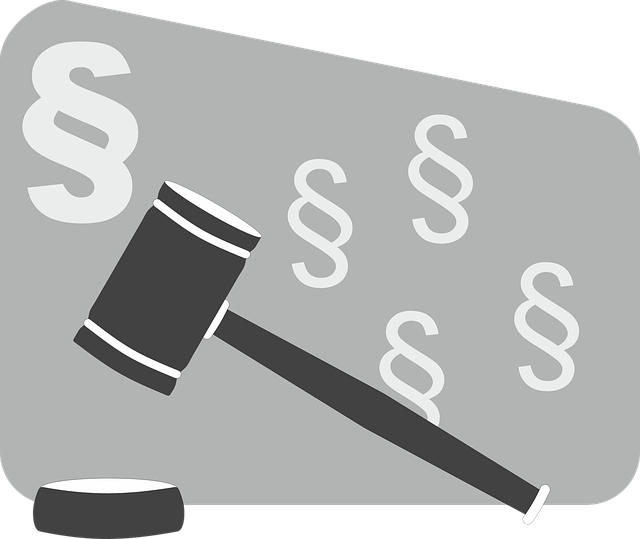Facing drug possession charges? Legal professionals use diverse strategies, from challenging evidence and search methods to plea bargaining and ADR, to defend individuals and businesses. These approaches aim to protect rights, uphold justice, and offer efficient resolutions, mitigating sentences and avoiding costly trials.
In the realm of legal disputes, understanding different litigation types is crucial for anyone facing drug possession charges. This article delves into various strategic legal approaches designed to defend against such allegations, including challenging evidence, negotiating plea bargains, presenting your case at trial, and exploring alternative dispute resolution options. By employing these effective strategies, individuals can navigate the complex landscape of drug possession cases with informed confidence.
- Understanding Drug Possession Charges
- Defense Strategies: Challenging Evidence
- Plea Bargaining: Negotiating Outcomes
- Trial Process: Presenting Your Case
- Alternative Dispute Resolution Options
Understanding Drug Possession Charges

Drug possession charges can have severe consequences for both corporate and individual clients, regardless of their respective business or location across the country. Understanding the legal approaches for defending against these charges is crucial. One common strategy involves challenging the admissibility of evidence, such as questioning whether law enforcement obtained the drugs through illegal search and seizure methods.
Additionally, defense attorneys may argue that their clients were unaware of the presence or illicit nature of the substances, known as the “innocence by association” defense. Other legal avenues include disputing the amount or type of drug alleged, as well as presenting character witnesses to corroborate the client’s reputation and behavior, thereby mitigating potential sentences. Effective representation in these cases often requires a deep understanding of local laws and prior case histories.
Defense Strategies: Challenging Evidence

When facing drug possession charges, a robust defense strategy is paramount to achieving a favorable outcome. One key component of this strategy involves challenging the evidence presented by prosecutors. This can include questioning the legality of searches and seizures, disputing the authenticity or admissibility of evidence, such as drugs or confessions, and exposing any procedural irregularities.
Legal approaches for defending drug possession cases often focus on upholding constitutional rights. These challenges aim to protect citizens from unfair or arbitrary law enforcement practices. By presenting compelling arguments and evidence, a winning challenging defense verdict becomes more likely, not just in individual cases but across the country. This approach ensures that respective business interests are protected while maintaining the integrity of the justice system.
Plea Bargaining: Negotiating Outcomes

Plea bargaining is a fundamental aspect of the legal system, offering a strategic avenue for individuals facing drug possession charges to navigate their cases. This process involves intense negotiations between the defendant and the prosecution, aiming to reach a mutually acceptable outcome short of a full-scale jury trial. In the context of drug possession cases, plea bargaining can be a powerful tool for those seeking to avoid the complexities and potential consequences of a general criminal defense strategy.
For those accused of drug-related offenses, pleading guilty or accepting a plea bargain can lead to more favorable sentencing and a faster resolution. This legal approach allows defendants to cooperate with prosecutors, providing information that could benefit law enforcement’s broader efforts against drug trafficking. As a result, plea bargaining not only offers a potential path to reduced charges and sentences but also contributes to the overall well-being of philanthropic and political communities by streamlining legal processes related to drug possession cases.
Trial Process: Presenting Your Case

When it comes to defending against drug possession charges, a trial often serves as the culmination of the legal process. During this phase, presenting a robust defense is paramount. Legal professionals employing general criminal defense strategies focus on challenging the prosecution’s evidence, including any alleged contraband and testimonies. They scrutinize police procedures throughout all stages of the investigative and enforcement process, ensuring compliance with constitutional rights to prevent illegal searches and seizures.
In addition to questioning factual evidence, white collar defense tactics might be employed if the case involves complex financial or regulatory issues. This could involve cross-examining experts, presenting alternative explanations for seemingly incriminating actions, and highlighting any procedural errors that may have occurred during the investigation. The goal is to sway the jury or judge in favor of the defendant by presenting a compelling narrative that distinguishes their actions from criminal intent.
Alternative Dispute Resolution Options

In addition to traditional jury trials, there are various legal approaches for defending drug possession cases that fall under Alternative Dispute Resolution (ADR) options. ADR methods offer a more flexible and potentially less adversarial approach to resolving such matters, catering to both corporate and individual clients. These strategies can be particularly beneficial throughout all stages of the investigative and enforcement process, providing opportunities for negotiation and compromise before reaching court.
One prominent ADR method is mediation, where an impartial third party facilitates communication between the defendant and law enforcement or prosecutors. This approach encourages open dialogue, allows for a mutual understanding of rights and responsibilities, and can lead to mutually acceptable resolutions without the need for lengthy jury trials. For complex drug possession cases involving substantial penalties, these alternative legal approaches may offer a more efficient and cost-effective strategy.
When faced with drug possession charges, understanding the various legal approaches for defending these cases is crucial. From challenging evidence through robust defense strategies to exploring plea bargaining and alternative dispute resolution options, each step in the process plays a significant role in navigating the complexities of the trial. By familiarizing themselves with these different litigation types, individuals can better protect their rights and achieve favorable outcomes. When considering legal approaches for defending drug possession cases, it’s essential to consult with an experienced attorney who can guide them through every phase.






